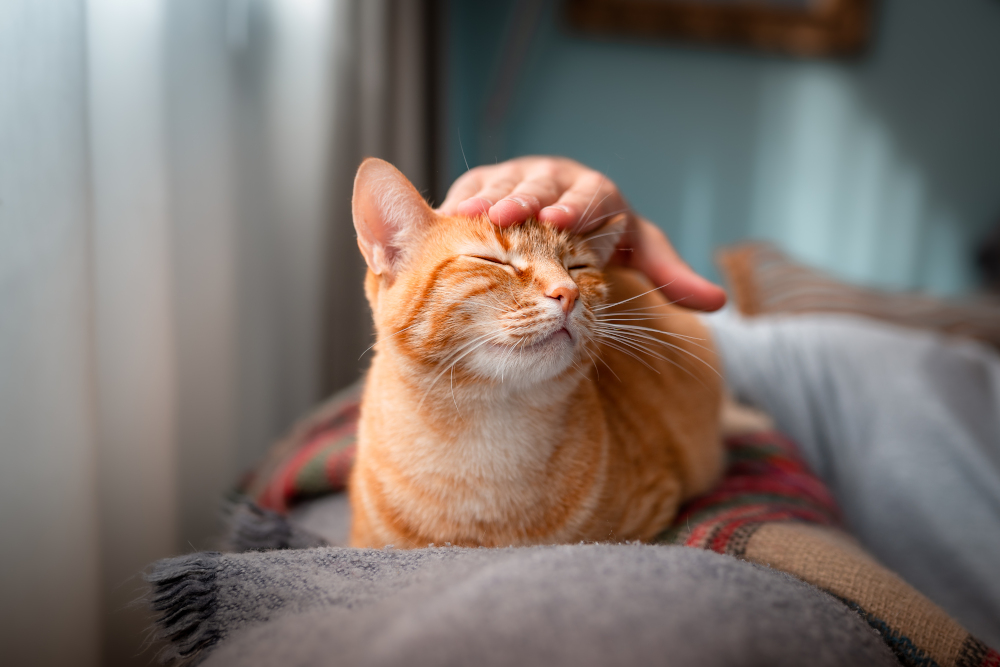Catering To Your Indoor Cat

Indoor cats have a pretty good life. They stay safe from the elements and are protected from neighborhood predators and speeding cars. Still, the indoor cat life can be…shall we say, boring? Although your indoor kitty loves attention from you, they get far less activity overall than their outdoor counterparts.
Unfortunately, a lack of activity can affect indoor cat health. Obesity is one of the most common conditions affecting cats, and a sedentary lifestyle can lead to being overweight. In addition, a lack of social interaction, destructive behavior due to boredom, and overlooked health issues are all side effects of an indoor lifestyle.
Luckily, enriching the lives and environment of indoor cats has become top of mind recently for pet owners, veterinary professionals, and all those who love cats. In this post, we share ways to give your indoor cat the best of both worlds – safety, and well-being.
Continue…Top 5 Tips for Excellent Cat Health

February is a short and feisty month and also National Cat Health Month! If you own a cat, you know what beautiful, intelligent, and unique beings they are. They are also often independent and self-sufficient, but this doesn’t mean they don’t need and deserve thoughtful care to feel their best. There’s a lot we can do as responsible cat guardians to give them a long and happy life, and it starts with these top 5 tips for excellent cat health.
Continue…Diabetes in Pets

It’s pet diabetes month, and what better way to focus on this common issue in cats and dogs than with help from your Felton Veterinary Hospital team? When we think about diabetes, our pets may not be at the top of our minds, but this debilitating disease is rising in both people and pets alike. According to Banfield Pet Hospital’s 2016 State of Pet Health Report, diabetes in dogs increased by nearly 80 percent from 2006 to 2015.
Diabetes is more common in middle-aged and older pets, but any pet can be affected. In addition, the disease commonly leads to other conditions, such as heart, kidney, and liver disease and cataracts. So pet owners must be aware of the risks and signs of diabetes in pets and how to prevent this disease from affecting their beloved pet.
The good news is that with early detection, you and your veterinarian can successfully manage the disease through diet, exercise, regular monitoring, and treatment. With mindful interventions, pets with diabetes can still live healthy, long lives.
Continue…Your Go-To Guide for Adopting a Shelter Pet

You’re ready to adopt a new pet! Congratulations. Of course, your first thought is probably to check out our local shelter, and we couldn’t agree more. Shelters and rescue organizations have many loving and wonderful pets of every size, shape, and personality just waiting for their forever homes.
Adopting a shelter pet is most successful if a little planning and preparation takes place before you set foot in the building. Felton Veterinary Hospital is ready to be your tour guide along the journey of adopting a shelter pet.
Continue…Keep The Feast on the Table, Not Under It…And Other Thanksgiving Pet Safety Tips

Anyone who has pets knows the pain of resisting puppy dog eyes at the dinner table. As cute as they are, our pets often win the battle on that one. But when it comes to Thanksgiving safety for pets, it’s important to understand the risks and repercussions of giving in.
But letting your pet partake in the feast is not the only risk to their health around the holidays. Keep reading for Felton Veterinary Hospital’s best tips for Thanksgiving pet safety, and avoid an emergency room visit on this, the most festive of holidays.
Continue…

 Schedule an Appointment
Schedule an Appointment
